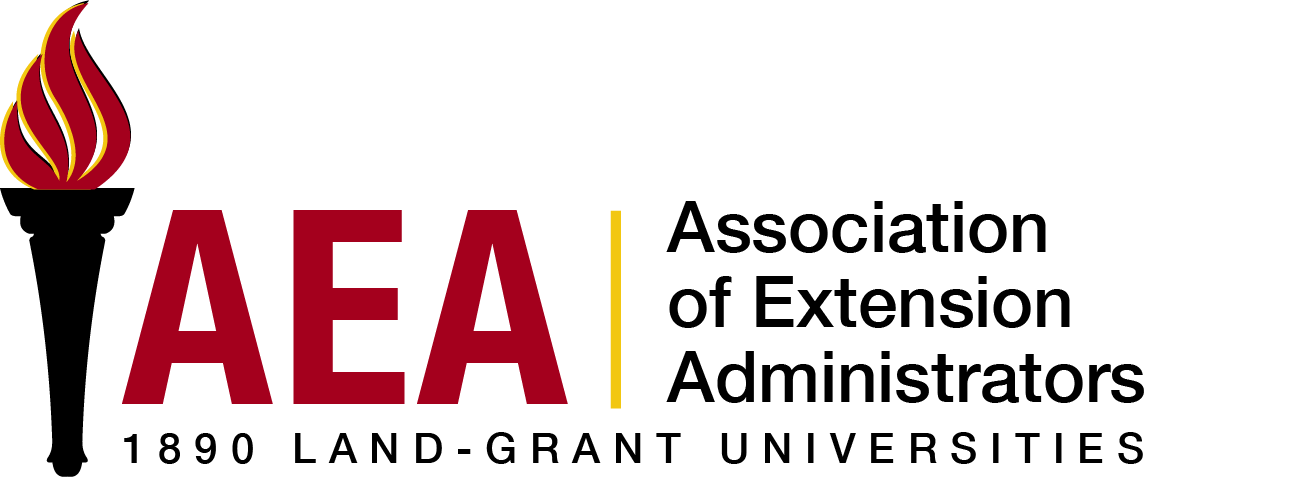Extension Today
News from and about the 1890 Land-Grant Extension SystemMessage from the Chair
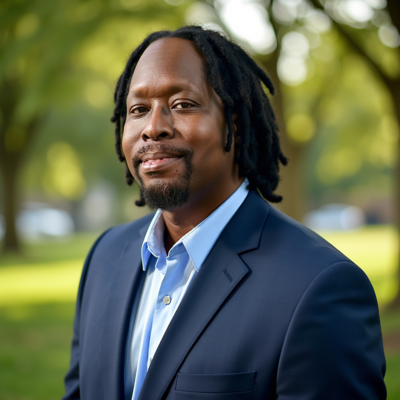
Dr. Raymon Shange, 1890 Extension Administrator, Tuskegee University
What is freedom and unity for us? Though the words freedom and unity can take on many meanings given different contexts, the Association of Extension Administrators is highlighting those projects and activities that we hold in high regard as representations of freedom and unity in our programming, communities and stakeholders.
Through efforts such as emphasizing food sovereignty in local food systems through community gardens, initiating law education initiatives for agricultural communities, investing in our next generation of leaders and celebrating history and culture, 1890 Extension continues to answer the call of the communities we serve.
We hope you enjoy what we have shared with you and that it helps you to continue to be bastions of freedom and unity in our country and the world.
Alabama Extension Week
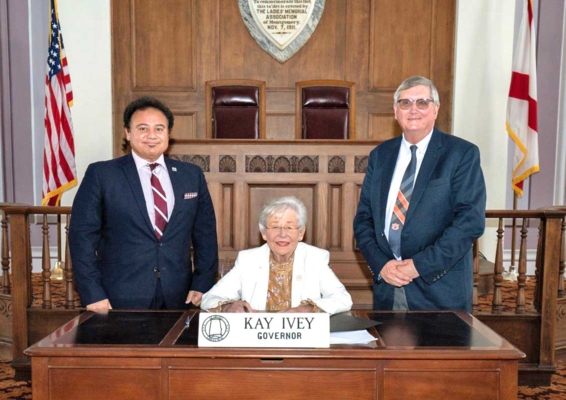
By Wendi Williams, Communications & Marketing Coordinator
The Knight v. State of Alabama case, better known as the Alabama higher education desegregation lawsuit, unified Cooperative Extension programs at Alabama A&M University (AAMU) and Auburn University into the Alabama Cooperative Extension System (Alabama Extension) with Tuskegee University cooperating.
Although there is one organization and staff share county offices, each institution has the freedom to implement different programs. For the past two years, however, Alabama Governor Kay Ivey has issued a proclamation and declared a week in the fall as Alabama Extension Week to acknowledge both institutions' impacts across Alabama.
During this week, each institution holds activities on its respective campus, and all 67 county offices offer programming activities that may enable Alabamians to discover Alabama Extension for the first time.
In 2024, Alabama Extension at AAMU held activities in the nine Urban Centers, Sumter County in the Black Belt, as well as the AAMU Quad, the James Dawson Extension Building, the People’s Patch Community Farm and the Winfred Thomas Agricultural Research Station in Madison County. These activities resulted in more than 2,079 direct contacts and 611,555 indirect contacts through digital media. In addition, 12,000 pounds of paper were shredded, and 219 pounds of unwanted drugs and 4,500 pounds of e-waste were collected, incinerated or recycled from community drives.
Alabama Extension Week 2025 will be held the week of Oct. 6-12, offering more opportunities to serve the people of Alabama.
Alcorn Extension summer camps bridge communities, inspire youths
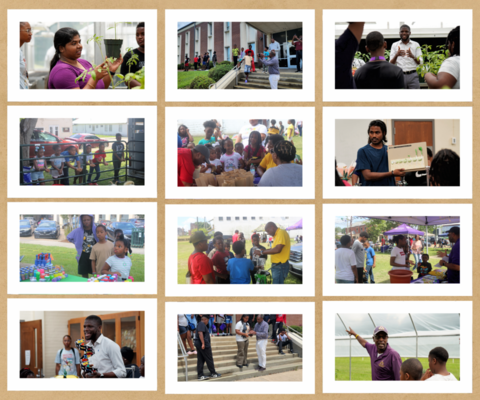
Across Mississippi this summer, echoes of laughter, learning and leadership are emerging from libraries, parks and classrooms as the Alcorn State University Extension Program brings a new wave of opportunity to youths through its 4-H summer camps.
With more than 20 camps launched or co-hosted across the state, Alcorn’s Institute for 4-H Youth Development delivers hands-on programs that foster curiosity, responsibility and connection in youths aged 5-18. Covering topics from agricultural literacy to STEAM, healthy living and college readiness, the camps serve as powerful incubators for personal growth and community impact.
“What makes these camps so special is the opportunity they give us to connect with our local communities,” said 4-H Youth Development Specialist Dr. Don Smith. “Extension is often referred to as the best-kept secret — and we are working hard to change that, especially within our 4-H program.”
That transformation is evident in Lincoln County, where 4-H Educator Monnette Pittman welcomed more than 230 youths to her first agricultural literacy camp at the Lincoln County Library in Brookhaven. The turnout marked a significant moment not just for the community but also for a growing movement that underscores the transformative power of access and education.
The momentum behind Alcorn’s 4-H efforts signals a deeper mission: one rooted in unity, freedom through knowledge and the pursuit of a stronger, more inclusive future. By embedding camps in local communities, the Extension program is quietly advancing values that mirror the spirit of Juneteenth — liberation through learning, empowerment through connection and freedom in forging one’s path.
From student to educator: Alvin Wilkerson’s Fast Track Farming journey with Central State University Extension
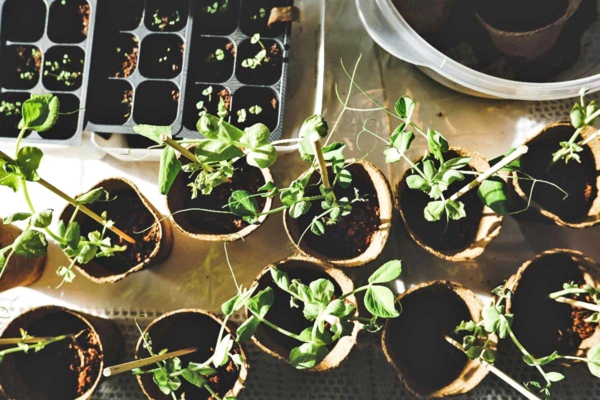
Alvin Wilkerson’s journey into agriculture started in the most grassroots way, right in a community garden alongside his family. At the time, he didn’t have any formal training in farming, but those hands-on experiences in local gardens sparked a real curiosity about sustainable food systems. With a little encouragement from a friend, Wilkerson decided to dive deeper and enrolled in Central State University Extension’s (CSUE) Fast Track Farming program. That decision turned out to be a life-changer.
Wilkerson was immediately drawn in by the program’s supportive vibe and practical learning style. While the technical knowledge was valuable, what stuck with him was the sense of community participants and mentors all learning and growing together. The Edgemont incubator site provided a perfect blend of classroom learning and real-world farming, which helped him see agriculture not just as a hobby but as a career path he could truly pursue.
His passion didn’t bloom overnight; it grew over time, through countless workdays, workshops and meaningful conversations. These steady, transformative moments eventually led Wilkerson and fellow graduates to co-found NuSol Farms, an urban regenerative farming project focused on sustainability and community strength.
By December 2024, Wilkerson's hard work came full circle as he stepped into his new role as agriculture and natural resources Extension educator at CSUE. Now serving the Southwestern Ohio region, he’s using his journey to inspire new students, creating welcoming spaces where learning feels accessible and exciting. Wilkerson encourages his students to be patient with themselves, reminding them that growth, whether in crops or life, takes time.
Honoring heritage, inspiring futures: Evolution of a transformative youth program
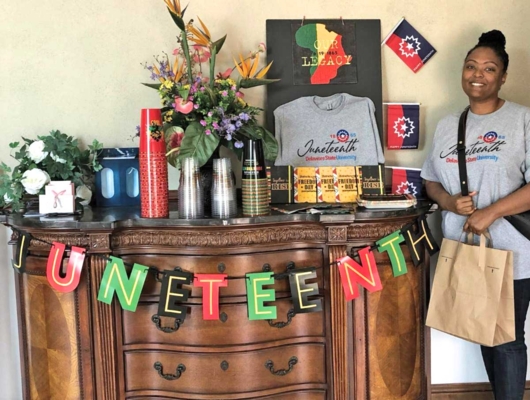
What began in 2008 as a sample pageant to celebrate the inner and outer beauty of young girls through talent, public service and public speaking has since evolved into a powerful and immersive educational initiative. With the support of dedicated community partners, the program quickly gained popularity, ultimately becoming a cornerstone of Delaware's Juneteenth celebration.
Appropriately hosted at Delaware State University (DSU), the state’s only historically Black university, this program was instituted even before Juneteenth became a national holiday. Now a weeklong overnight experience, the Juneteenth Youth Program serves as a dynamic platform to educate and empower youths by exploring the rich history of Juneteenth from the Emancipation Proclamation to Galveston. Participants engage in a broad curriculum that blends academic enrichment with real-world exposure.
From distributive education in farming and poultry engineering to lessons in money management, state government and law enforcement, the program fosters critical thinking, civic awareness and life skills.
Daily activities include nutritious meals, coursework and hands-on learning at community hubs and on the DSU campus, guided by university professionals. Field trips to historical landmarks, media outlets, farms and even chicken festivals offer students an expanded worldview and tangible connections to culture and career possibilities.
This initiative not only educates but also cultivates future leaders — young individuals who return to their communities inspired, enlightened and ready to lead. It is a living testament to the spirit of Juneteenth: freedom, progress and the promise of opportunity.
Extension in action: FAMU supports wellness, community for women veterans
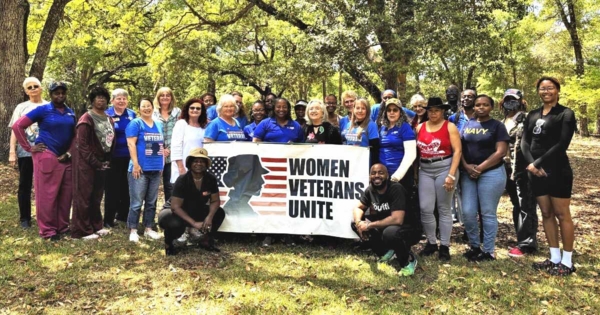
The fourth annual Women Veterans Unite Retreat offered a day of healing, relaxation and creative expression for women veterans, reflecting Florida A&M University Cooperative Extension’s ongoing commitment to freedom, unity and community well-being. Through their support, the retreat provided a safe, empowering space where veterans could recharge and connect.
Participants enjoyed interactive breakout sessions, including Reiki and massage therapy for holistic healing. The vibrant art therapy zone encouraged mindfulness with activities like mandala rock painting, adult coloring and birdhouse building.
A retreat highlight was Linda’s Tea Party, led by Extension Agent Linda Sapp. Veterans learned about the healing properties of herbs, how to cultivate them and crafted personalized tea blends. Each guest received tea trees from Fairhope Tea Plantation and herb plants from Native Nurseries, extending their wellness journey beyond the retreat. The day also featured a refreshing pineapple bowl lunch by Pineappetit and concluded with a peaceful chair yoga session led by certified instructor Pamela Hunter.
The retreat embodied the spirit of freedom and unity while promoting self-care and community support for women who have served.
Confidence, character, community
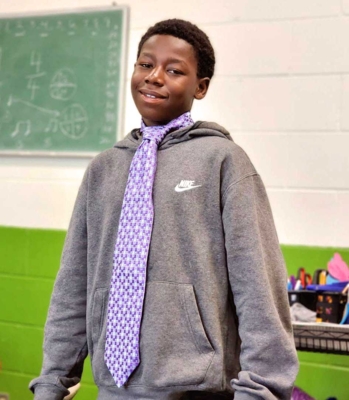
On June 19, nine young men gathered at Mount Moriah Missionary Baptist Church in Macon, Georgia, not just to learn etiquette but to take meaningful steps toward becoming respectful, confident and united leaders of tomorrow.
Leading the transformative session was Billy Brown, an energy educator at Fort Valley State University, who presented "Etiquette for Young Men" as part of a summer initiative focused on manners, art, reading, culture and more. Through interactive lessons on social conduct, respect, sportsmanship and personal presentation, Brown emphasized how simple gestures like tying a tie or offering a firm handshake can become powerful symbols of self-respect and connection.
The participants, boys aged 6 to 15, each received a necktie and a shoehorn as tokens of the experience. Many expressed how eye-opening the session had been, with one young man’s sincere handshake and words of thanks capturing the true spirit of the event.
“There are certain things that young men need to know about grooming, tying a tie, shaking hands and having proper conversations in formal settings,” Brown shared. “These are life skills that link generations and strengthen communities.”
Brown also connected with parents and grandparents during the event, sharing energy-saving resources from his Georgia Residential Energy Efficiency Network (GREEN) Project. He provided tips to help families reduce energy costs and distributed energy-efficient light bulbs to support their efforts.
This Juneteenth gathering was a celebration of mentorship, growth and community. It served as a reminder of how shared knowledge and positive role models can create lasting, generational impact.
Celebrating unity on campus
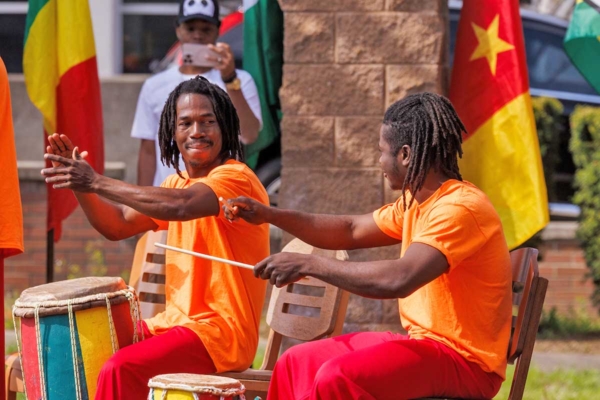
Kentucky State University (KSU) hosted its first-ever World Heritage Week in April. Historically, a one-day event, this year, multiple days were dedicated to celebrating unity and the many cultures on KSU’s campus. During the 2024-25 school year, KSU welcomed 138 international students, representing 24 countries.
World Heritage Week events included a parade, a pageant, food from around the world and various opportunities to learn about different cultures. The program was an outstanding success marked by the high attendance of the week’s events and positive feedback from the community.
This program is just one of many at KSU that foster a vibrant campus culture and inspire students to broaden their horizons and try new experiences. KSU remains committed to providing its students with transformative educational experiences that prepare graduates to make meaningful contributions to society.
Langston University partners with Tulsa Dream Center
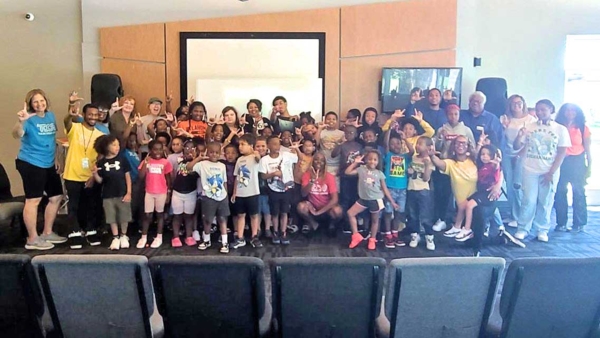
Nestled in the heart of Tulsa, just 10 miles from the historic Greenwood District, the Tulsa Dream Center stands as a beacon of hope. As a nonprofit faith-based organization, it offers food, equitable health care, athletic programs and educational services to youths across Tulsa. Its mission: “To break the cycle of poverty, help people find healing and change the trajectory of the next generation.”
Tim Newton, executive director, now manages two locations in North and West Tulsa. The center serves as a vital summer destination for children, offering safe, enriching opportunities during school breaks. The Tulsa Dream Center’s STEM projects empower youths with hands-on learning, history and STEM exploration. Faculty and staff from Langston University's (LU) Sherman Lewis School of Agriculture and Applied Sciences and Extension engage in service learning, fostering strong community connections.
To launch the summer, Dr. Rashell Campbell-Daughty, program cluster leader of youth development and urban engagement, and Micah Anderson, horticulture Extension educator of LU-Extension, spoke to the youths about the significance of Juneteenth, marking the end of slavery in 1865. The children listened intently, with one child simply stating, "Slavery was not nice, and you should not be mean to people. We should be nice, kind and love people."
Following the discussion, Campbell-Daughty led a STEM-based bracelet-making activity, integrating Juneteenth history with creativity. Using black, red, green and yellow beads, students measured, cut and assembled bracelets that incorporated their names and personal touches, such as sports, flowers or smiley faces.
United for Juneteenth: Honoring history, building community
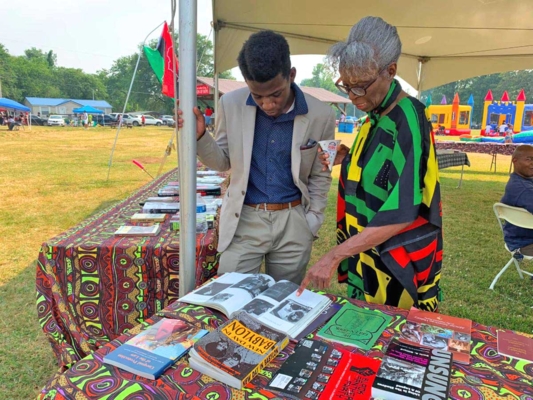
Juneteenth in Sikeston is more than a celebration. It reflects Lincoln University (LU) of Missouri’s ongoing commitment to education, outreach and community engagement.
As a key collaborator in the annual festival, the LU Cooperative Extension (LUCE) Sikeston Impact Center helps connect community members through programs supporting youth development, family wellness and leadership. The Juneteenth Festival builds on these efforts, bringing people together to honor history, celebrate culture and strengthen community ties.
“It’s a weekend of unity, community, food, fun and fellowship,” says Brenda Robinson-Echols, LUCE regional coordinator in southeast Missouri and Juneteenth planning committee member. “This celebration is all about coming together, learning and having an unforgettable time.”
Extension effort brings communities together in garden
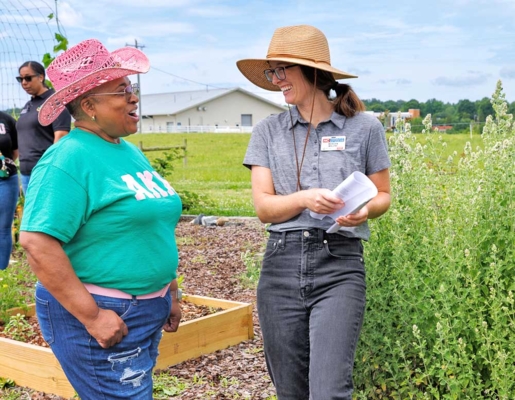
Rhonda Watlington had every intention of starting a small garden three years ago when she bought a raised gardening bed, but...
“It’s still in the box...it’s still in the garage,” she said, admitting to being a bit intimidated by starting a garden when she has no experience.
However, through a joint venture of Cooperative Extension at North Carolina A&T and the College of Agriculture and Environmental Sciences at N.C. A&T State University, Watlington is finding the resources and the incentive she needs to dig that box out of the garage and start growing.
Extension and the college run the Student Community Farm at the University Farm on McConnell Road. And while there are a few rental spaces set aside for gardening, “the community garden is really meant to be an outreach opportunity for people to learn more about community gardening and how they can get involved in their area,” said Morgan Malone, urban agriculture and community gardens coordinator for Extension.
“My role is to support community gardens and urban ag projects across the state, primarily in our urban areas, but also in our rural areas,” Malone said, “to make sure they get the support and resources they need to be successful over the long run.”
Extension offers help with starting a community garden, facilitating an interest meeting and developing a financial plan. The program also offers a Community Garden Leadership Academy at locations around the state, Malone said.
Mental health matters at PVAM Extension
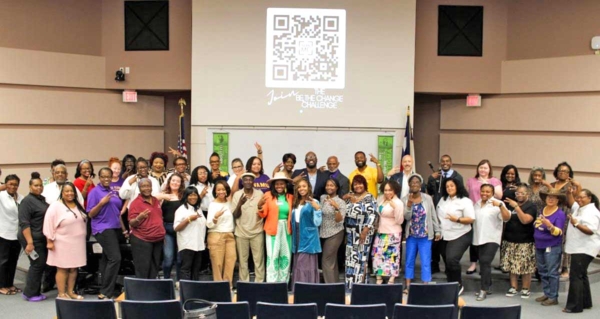
By Sabrina Simon, Program Specialist III
The importance of mental health and wellness cannot be overstated. Just as we maintain our physical health through regular exercise and proper nutrition, we must also prioritize our mental well-being through self-care, professional support when needed and maintaining healthy boundaries and relationships. This holistic approach to health leads to better outcomes in all areas of life. The impact extends beyond individual well-being. Untreated mental health conditions can affect family dynamics, workplace productivity and overall community stability.
The Prairie View A&M University Extension’s Family and Community Health (FCH) unit has begun to address the need for mental health and wellness in Texas. They hosted the first Mental Health Conference in July 2024, where participants attended workshops that raised awareness about mental health issues, ignited conversations to reduce stigma and promoted empathy toward individuals dealing with mental health challenges.
As the demand for mental health and wellness education increases, the FCH unit strives to be the go-to in its local counties. Several FCH Extension agents have conducted classes using the Mind Matters: Overcoming Adversity and Building Resilience – A Toolkit for Empowerment curriculum by the Dibble Institute.
The FCH unit is planning its second Mental Health Conference, slated for June 2025, and looks forward to providing educational opportunities to increase mental health awareness in Texas communities.
SC State PSA hosts agritourism workshop at the Black Cowboy Rodeo
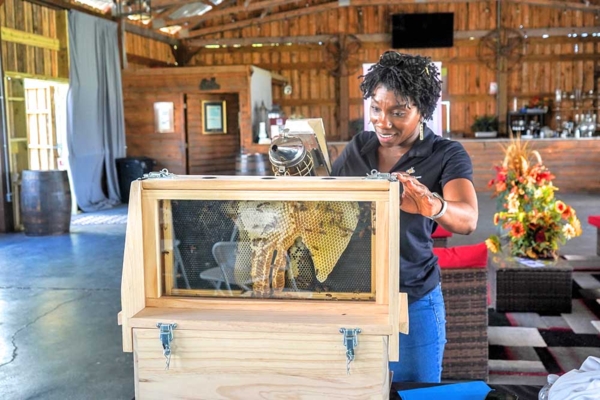
The South Carolina State University 1890 Extension's Sustainable Agriculture and Natural Resources (SANR) team participated in the 2025 Black Cowboy Festival, held from May 22 to 25 in Rembert, South Carolina, hosting engaging and educational workshops that highlighted key opportunities and innovations in agritourism and sustainable agriculture.
As part of the annual festival, the workshop included presentations and hands-on demonstrations from 1890 Extension research scientists, Extension agricultural agents and a special presentation by the United States Department of Agriculture on May 22-23.
The SANR team provided in-depth presentations and discussions to 118 participants on a wide range of topics, including:
- Agritourism development opportunities.
- Integration of high tunnels into agritourism activities.
- Urban agriculture and its role in community engagement.
- Marketing strategies for agritourism.
- Hemp production and value-added products.
- Irrigation systems and pollinator support for beekeeping.
Through these sessions, SANR aimed to equip attendees with practical knowledge to expand their agricultural enterprises, enhance profitability and support sustainable land use and environmental stewardship.
"The Black Cowboy Festival provides an excellent platform to connect with various communities alike to celebrate a rich legacy in history while equipping participants to expand their agricultural enterprises," said Dr. Josuha Idassi, state program leader for sustainable agriculture and natural resources. "By focusing on agritourism and value-added opportunities, we want to provide participants with a way to enhance profitability and sustainability with their farming operations."
Celebrating the rich legacy and enduring contributions of African American cowboys and frontiersmen, the Black Cowboy Festival is an annual gathering dedicated to education, recreation and cultural appreciation.
Programs offered through Southern University Ag Center and College of Ag foster freedom, unity
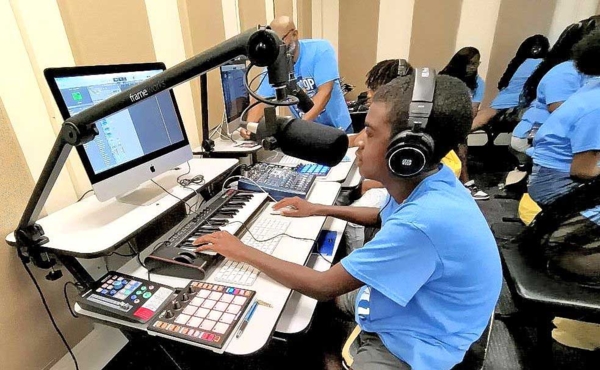
The Southern University Agricultural Research and Extension Center (Southern University Ag Center) is the philanthropic arm of the Southern University System. Its tripartite mission of Extension, teaching and research provides the state with programs, initiatives and information that support freedom and unity.
The Ag Center’s Cooperative Extension Program has a motto of “Linking the Citizens of Louisiana with Opportunities for Success.” This is seen through programs such as the youth development area’s Hip Hop to Gen Z Summer Camp. This camp gives youths the freedom to explore STEAM (science, technology, engineering, agriculture and mathematics) through the facets of music, sound engineering and filmmaking, along with the unity of choreography.
The academic and student programs in the College of Agricultural, Human and Environmental Sciences (CAHES) promote academic excellence and unity through events like the “AG-tion for the Dream: A Martin Luther King Jr. Day of Service.” This event allowed students to come together outside of the classroom to participate in a painting project in a neighborhood near the university.
The Research Unit of the Southern University Ag Center aims to transform lives through innovative research and education. Research conducted in the Viticulture and Enology program enables Louisiana residents to grow value-added crops that have not traditionally been grown in the state.
To learn more about the SU Ag Center’s programs and research or CAHES, visit www.suagcenter.com.
TSUAg Adult Immunization Education Program offers freedom from vaccine fear
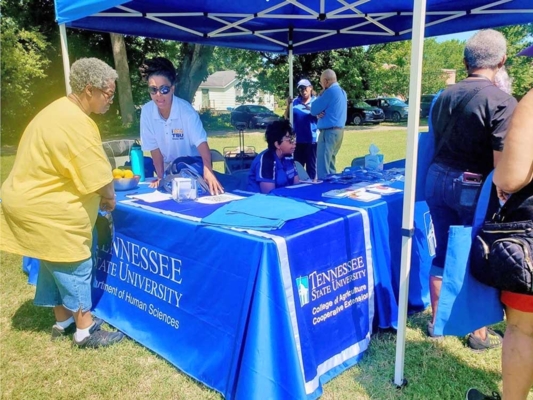
By Rita Fleming
The Tennessee State University College of Agriculture (TSUAg) Cooperative Extension program, through its Family and Consumer Sciences (FCS) division, takes aim at fear and division in society in running its Adult Immunization Education Program. This impactful initiative, in partnership with the United States government’s Centers for Disease Control and Prevention, directly addresses health outcomes in communities across Tennessee by providing education on what vaccines are, what they aren’t and what they can do.
By focusing on vaccination hesitancy, particularly around adult immunizations, the program fosters unity by promoting collective health and well-being. It utilizes social marketing and community input, often through trusted local individuals, to facilitate open dialogue and discuss lived experiences. Our community is oftentimes the best teacher, and we seek to be that community for Tennessee residents.
This approach fosters trust between communities and health educators, thereby strengthening family and community health. By empowering individuals with information and increasing awareness and accessibility to vaccinations, TSU Cooperative Extension helps families protect themselves and contribute to a healthier, more unified community, aligning perfectly with the program's mission of empowering individuals and strengthening families.
Tuskegee University continues to promote freedom, unity
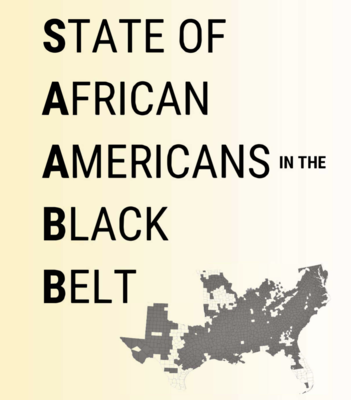
Historically, Tuskegee University has been a beacon for freedom and unity for African American communities through knowledge, service and leadership, addressing the economic and cultural issues that affect these communities.
This mission continues today through the Tuskegee University Cooperative Extension Program (TUCEP), which provides updates on the status of African American communities and offers solutions for the issues that affect them. A division within the Carver Integrative Sustainability Center (CISC) was developed for integrated research and training, focusing on the impact of policy upon the African American community in the rural South. This area has long been a neglected and problematic segment of the nation's economy and culture.
Therefore, CISC identified a deeply rooted connection between history, race, place and poverty within the Black Belt region. Persistent poverty and dependence ultimately impose a high cost on individuals, families and the community in the form of support payments (such as food stamps, Medicaid and Medicare costs, and welfare support) and lost productivity.
For this reason, CISC created "The State of African Americans in the Black Belt" (SAABB), a yearly report founded by Tuskegee University and the Federation of Southern Cooperatives/Land Assistance Fund and funded by the W.K. Kellogg Foundation. The SAABB provides policymakers, advocates and academics with data-driven information and recommendations to assist them in their work on behalf of African Americans and their communities in the Black Belt region.
Some of the issues addressed by the group include health disparities, food insecurity, environmental injustices and disparities affecting Black farmers and ranchers.
Conway County landowner uses UAPB forestry program to preserve family heritage
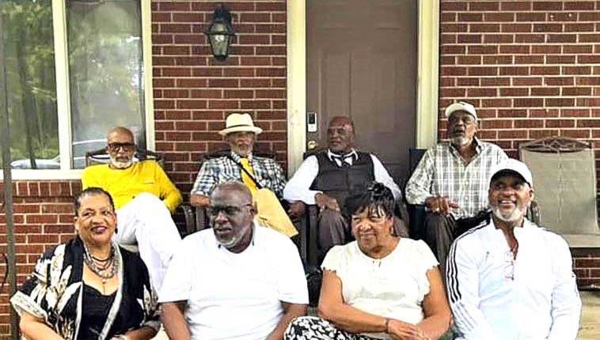
The University of Arkansas at Pine Bluff (UAPB), “Keeping it in the Family” (KIITF) Sustainable Forestry and Retention Program, helped assist UAPB alumnus Wooden Walker to preserve his family heritage. Walker received assistance for his family's farmland located in the community of Holly Springs in Springfield Township, Conway County, Arkansas.
Walker received training and assistance through programs and conferences offered by KIITF and organizations a part of the Sustainable Forestry and Land Retention Network.
“I believe the timing was divine,” he said. “Here I was looking for options to revitalize our land, which had been left dormant. Just by chance, by word of mouth, I heard about UAPB’s ‘Keeping it in the Family’ Program, which helps small landowners preserve their family land for future generations.”
Walker attended the fourth annual Sustainable Forestry and Land Retention Joint Regional Conference held at Prairie View A&M University.
“There, my eyes were opened to just how relevant this topic is,” he said. “There is a real push to ensure African Americans are retaining their land and enhancing its sustainability.”
Due to his involvement with the UAPB program, Walker said he has also learned a lot about heirs’ property, which motivated him to create a nonprofit organization.
“I decided to create a nonprofit organization for raising funds for attorney fees for those dealing with heirs’ property issues,” he said.
His involvement with this program has motivated him to want to help reverse the trend of African American land loss. His goal is to use his life experience and legal expertise to assist Black Arkansans in retaining and revitalizing their land.
UMES ALEI raises awareness of legal issues impacting Maryland growers
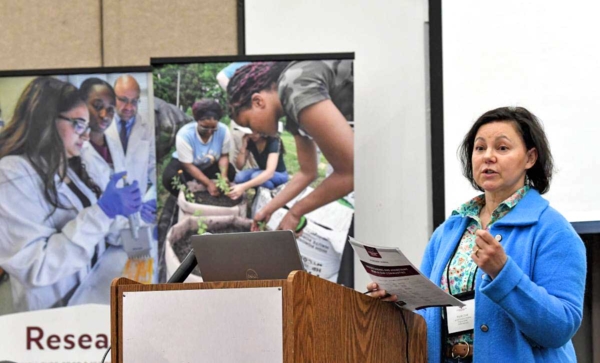
By Gail Stephens, Agricultural Communications
The University of Maryland Eastern Shore’s (UMES) Agriculture Law Education Initiative (ALEI) strengthens regional economic development by providing legal education and training to stakeholders, particularly those in agriculture, to ultimately improve their financial health and personal well-being.
Working with UMES Extension and the University of Maryland Extension, ALEI helps Maryland’s farmers understand and navigate the laws affecting their operations. In-person and online educational training programs, publications and other resources address key areas, including food safety regulations, liability risk management, farm taxes, heirs’ property and workers’ compensation issues.
Panel discussions at conferences such as the UMES Small Farm Conference and the Maryland Agritourism Conference are aimed at raising awareness of legal issues impacting Maryland’s growers. Topics focus on evolving laws and litigation and deeper issues, such as cooperatives, land access and working with regulatory agencies.
“The overarching goal is to help residents in Maryland realize the freedom to own and operate agricultural businesses through generations while keeping abreast of the changes and regulations that could influence them,” said Nicole Cook, the environmental and agricultural faculty legal specialist with UMES Extension’s ALEI.
VSU increases food sovereignty by scaling healthy harvests for small spaces
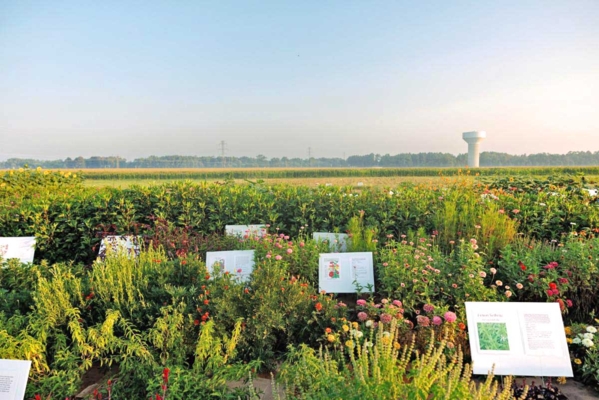
Petersburg, Virginia, is known as a food desert, which is a community with at least a 20% poverty rate, and where one-third of residents live more than one mile from the nearest grocery store, according to the U.S. Department of Agriculture (USDA). In food deserts, residents have limited access to affordable, nutritious foods. While home food production can be a solution to food insecurity, having limited or no outdoor space is a significant barrier.
At Virginia State University (VSU), Dr. Theresa Nartea is exploring ways to increase local food sovereignty by bringing traditional methods of companion planting into small spaces. Over at VSU’s Randolph Farm, she compares outputs for integrated and mutually beneficial vegetables, herbs and flowers grown in a field, high tunnels and containers.
One morning, she harvested 3 pounds of beans from DIY trellises nestled among companion vegetables, herbs and flowers. Food sovereignty emphasizes local, sustainable production that gives communities and individuals the freedom to define their food needs and systems and grow healthy and culturally relevant foods.
To this end, Nartea is growing common ingredients that people cook with and eat. She scoured cookbooks and investigated top sellers from local produce sections. As the coordinator for VSU’s Trojan Farmers Market, she has her finger on the pulse of what the local community is buying. She hopes her efforts will give people something new to try that maximizes even the smallest spaces for successful food production.
WVSU Extension Service helps honor the state’s Black history

West Virginia State University (WVSU) Extension Service partnered with the National Park Service and others to celebrate the Mountain State’s African American history. The group created a West Virginia African American Heritage Tour, a smartphone app and booklet designed as a self-guided driving tour through several counties in the state.
“This project was a unique and interactive way to uncover and honor the contributions of the many Black coal miners, railroad workers and other community members that helped shape our region,” said WVSU’s Community Vitality and Economic Development Program Leader Adam Hodges.
The self-guided auto tour takes the user to 17 historic sites across four counties to learn about the history and experiences of the region’s African Americans.
The project was made possible through a partnership with the New River Gorge Regional Development Authority, The National Coal Heritage Area, the West Virginia Humanities Council, The African American Heritage Family Tree Museum, DuBois on Main Museum, WVSU and Visit Southern West Virginia.
1890 communicators win awards at 2025 ACE Conference
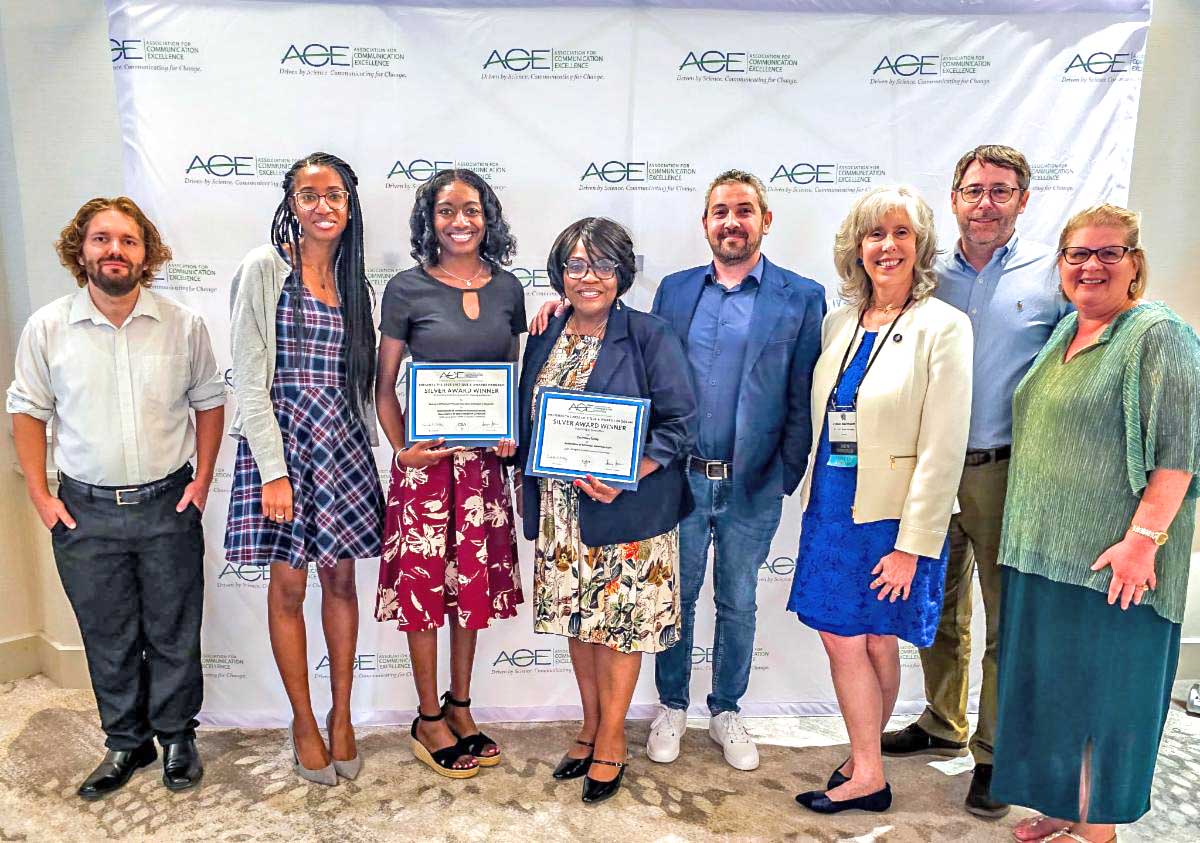
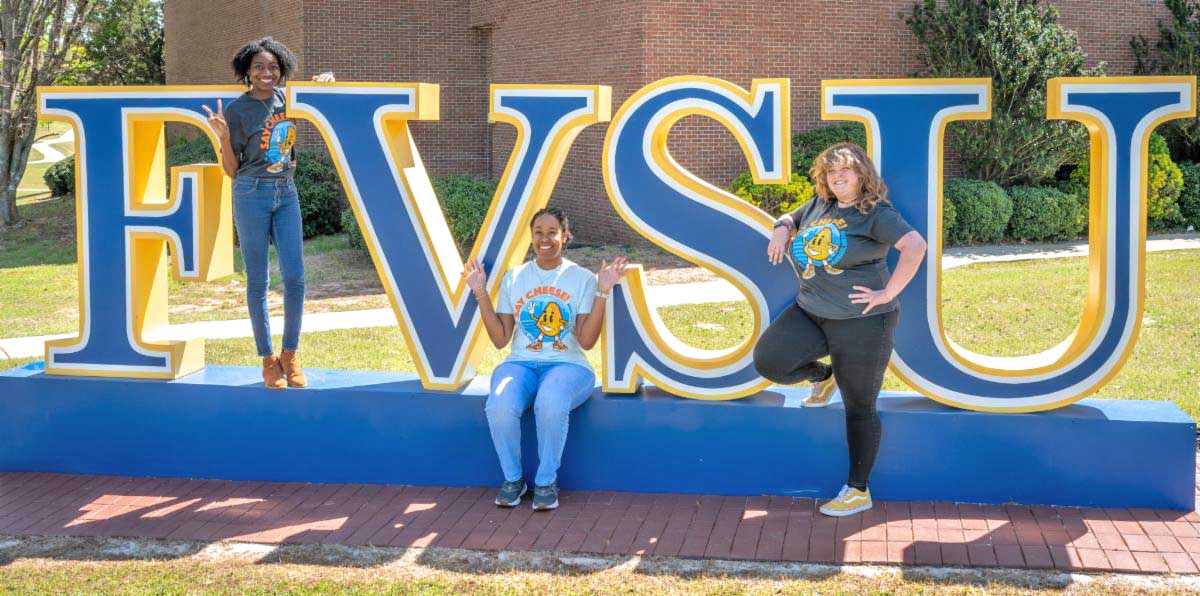
The 1890 Land-grant Communications Committee received two honors in the Critique and Awards Program at the 2025 Association for Communication Excellence (ACE) Conference in Milwaukee, Wisconsin.
- Silver Award in the Publications for Diverse Audiences category for the 2024 1890 Impact Report titled “Making a Difference Through Education, Extension & Research.”
- Bronze Award in the Newsletters category for Extension Today.
Fort Valley State University's ChaNae' Bradley and Latasha Ford served on the 2024–25 ACE Board of Directors as president and vice president, respectively.
